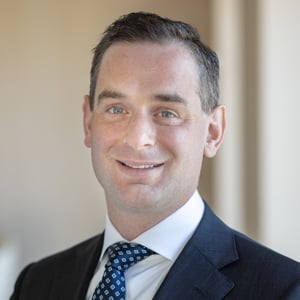The European Long Term Investment Funds (“ELTIF”) label aims to boost long-term investments in the real economy and facilitates the distribution of illiquid assets to EU based HNWI. A key advantage of ELTIF labelled funds is the EU marketing passport, which extends beyond institutional investors and includes EU HNWI. Such passport effectively entails that, if the ELTIF is registered for marketing in its EU home country, marketing access is granted to EU HNWI across all EU Member States.
Fund managers looking to launch an ELTIF must appoint an EU-based authorized alternative investment fund manager (“EU AIFM”) with a license covering the ELTIF’s asset classes, such as private equity, private debt, or real estate.
For fund managers without their own EU AIFM, a host or 3rd party AIFM in Luxembourg (“Host AIFM”) offers a practical solution, accommodating a faster access to the EU market and avoiding costs for setting up and operating their own EU AIFM. The Host AIFM solution is therefore dominant for ELTIFs sponsored by, in particular, US fund managers.
Once a Host AIFM is selected, fund managers must consider their preferred operational set-up.
Under the delegated portfolio manager model, the Host AIFM delegates the portfolio management (“PM”) to the USFM under a delegation agreement, executing the investment strategy while the Host AIFM retains risk management (“RM”) oversight to ensure compliance with the fund’s risk profile. Monitoring obligations exist but generally do not interfere with daily investment decisions, though pre-transaction RM checks may still be required. Essentially, the fund manager leverages the Host AIFM’s Luxembourg-based risk management framework. This arrangement requires that the fund manager is regulated and that the CSSF is notified before delegation begins.
While it is possible for Host AIFM to retain full responsibility also for PM, with the USFM merely advising on PM matters, this is less favored as fund managers typically prefer to retain control over PM through the delegated model.
The fund manager may develop the marketing strategy but will still need to appoint locally licensed distributors to reach private banks, wealth managers, and family offices that will, in practice, contact EU investors. These local distributors ensure that marketing to eligible HNWIs is conducted in full compliance with EU regulations. In Europe, a network of distribution platforms is often required to support the fund’s (sub)distributors. While these platforms do not actively market the funds, they provide effective conduits for investors into ELTIFs.
Choosing the right AIFM set-up and distribution strategy is therefore critical for fund managers seeking efficient market access, regulatory compliance, and successful engagement with EU HNWI investors.
Want to know more about this topic? Reach out to one of our colleagues mentioned below.








